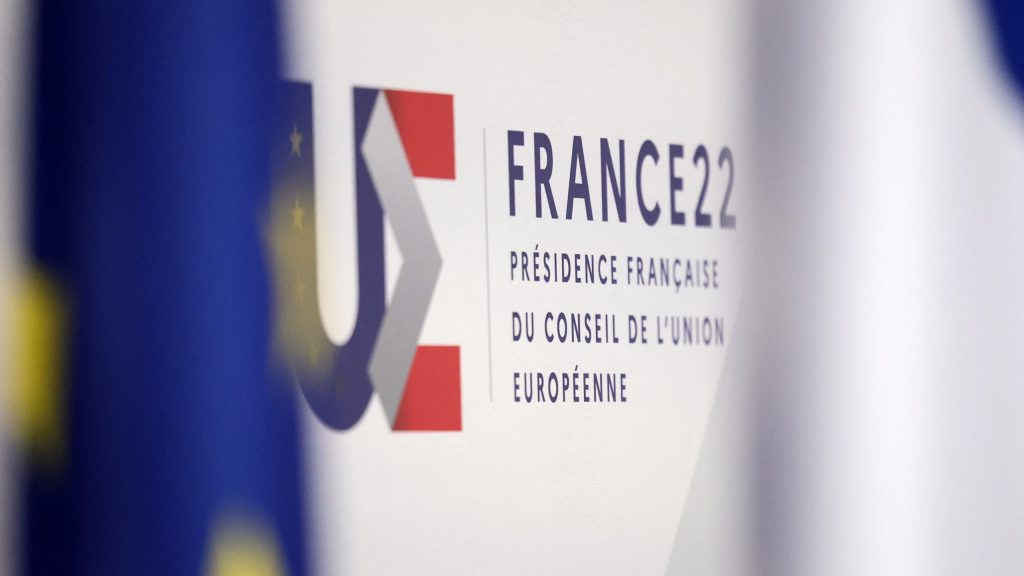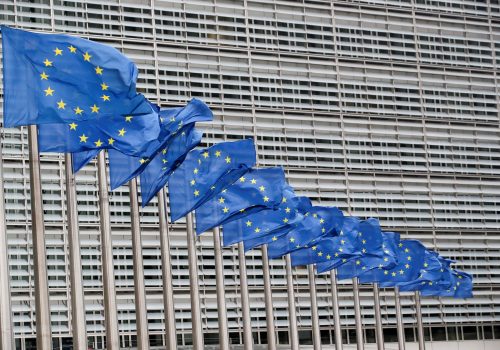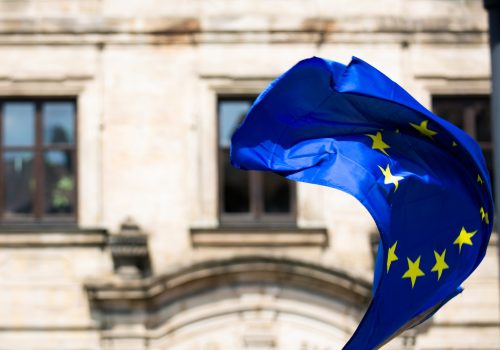When European governments declared January 28 to be “Data Protection Day” back in 2006, few in the United States took the move seriously. It took three years for the US Congress to follow suit and recognize that date as an occasion to commit to data privacy. Now, as France takes fresh steps to reduce Europe’s exposure to American (and to some extent Chinese) technological dominance, the United States can’t afford to be caught napping.
France holds the rotating presidency of the European Union (EU) Council of Ministers for the first half of 2022—an ideal perch from which to further its digital ambitions. Along with chairing an endless parade of obscure Council meetings, the French are convening a two-day public conference, starting today, entitled “Building Europe’s Digital Sovereignty.”
Monday’s focus is on “the four pillars underpinning European digital sovereignty: security, innovation, regulation and values, and openness,” reviewing the steps the bloc has taken so far and planning future moves. (“Values” is often code for resisting the long arm of US intelligence and law enforcement agencies, but “openness” is a counter-balancing nod to the EU’s traditional, if weakened, embrace of free trade.) Tuesday will be devoted to “nurturing European champions,” showcasing the continent’s technology entrepreneurs, particularly those from smaller firms.
This isn’t just another manifestation of the EU’s penchant for policymaking-by-conference. Waving the flag of digital sovereignty is good domestic politics for French President Emmanuel Macron, especially as the country’s presidential election approaches. Economy Minister Bruno Le Maire and Secretary of State for the Digital Economy Cedric O have been at the forefront of efforts to develop local alternatives to foreign cloud-service providers. Last year, they launched a “trusted cloud strategy” (“cloud de confiance”) setting out criteria for protecting French data from US laws. Companies such as Microsoft and Google have created joint ventures with French partners to offer their services without disruption. France also intends to seek a local successor to Microsoft as host of its COVID-related Health Data Hub (HDH).
But even these measures have proven insufficient to shield governments such as Macron’s from domestic allegations that they’re being too cozy with Big Tech. On January 25, Virginie Joron, a member of the right-wing National Rally party of Macron’s presidential rival Marine Le Pen, denounced the French government’s initial decision to let Microsoft host the HDH. “You have introduced American giants into the data of French administrations, in the very heart of the state,” she declaimed in the European Parliament, according to a Politico report. Valérie Pécresse, a center-right presidential candidate, voiced similar criticism of the role of US tech giants in a recent French parliament address. The French left has chimed in as well.
These domestic steps are matched by a steadily advancing EU digital-policy agenda. In 2019, European Commission President Ursula von der Leyen asserted that “it is not too late to achieve technological sovereignty” in critical technology areas. Thierry Breton, a French former technology executive who is now the EU’s top official for the internal market, has played point for measures designed to promote European cloud-service providers and seed continental advances in newer technologies such as blockchain, quantum computing, and semiconductors. Margrethe Vestager, the bloc’s competition enforcer, has made headlines with her willingness to challenge the business practices of US tech giants.
The Digital Markets Act and the Digital Services Act—twin efforts to address the economic dominance and social impact of powerful online platforms—are close to legislative enactment. The European Commission has proposed an Artificial Intelligence Act, aimed, among other things, at regulating uses of AI in the areas of education, employment, and public benefits. The EU has already enacted the Data Governance Act, which should improve sharing of government-held data with private sector entities eager to exploit it. A companion bill, the Data Act, due to be proposed later this month, similarly aims to facilitate business-to-business and business-to-government sharing of primarily industrial data.
The concept of digital sovereignty thus plays both an offensive and a defensive role in France’s EU Presidency. By holding conferences and chairing meetings of the grouping’s member states, the Macron government can help push European digital legislation towards conclusion. These efforts, together with domestic initiatives to hobble foreign cloud giants, can also help immunize Macron from the charges of his presidential rivals.
As Frances Burwell and I argued in a paper for the Atlantic Council in June 2020, almost all of the EU’s new digital legislative proposals aim at exercising greater control over Europe’s data. There’s no denying that the idea of digital sovereignty is a driving force in European technology policy debates today. And the ripple effect of decisions taken in Brussels and other European capitals will be felt across the pond.
Kenneth Propp is a nonresident senior fellow at the Atlantic Council’s Europe Center.
Further reading
Fri, Sep 24, 2021
The US-EU Trade and Technology Council: Seven steps toward success
New Atlanticist By Frances Burwell
Officials should leave the first formal TTC meeting enthusiastic about the work to be done.
Thu, Jan 20, 2022
Can the US and EU rein in Big Tech with diverging approaches?
New Atlanticist By
As the US and EU seek to address difficult questions swirling around some of the world’s biggest companies, 2022 will be a busy year for antitrust regulation.
Wed, Dec 8, 2021
Europe in a bipolar tech world
Report By
With no sign of Beijing backing down, the US administration lays out a strategy for restructuring NATO to be targeted on Russia and China, combining its allies from Asia and Europe into an enlarged, redefined alliance.
Image: The logo of the six-month French presidency of the European Union is seen during the EU ministerial conference "Building Europe's Digital Sovereignty" at the Bercy Ministry in Paris, France, February 7, 2022. Photo by Sarah Meyssonnier/REUTERS



